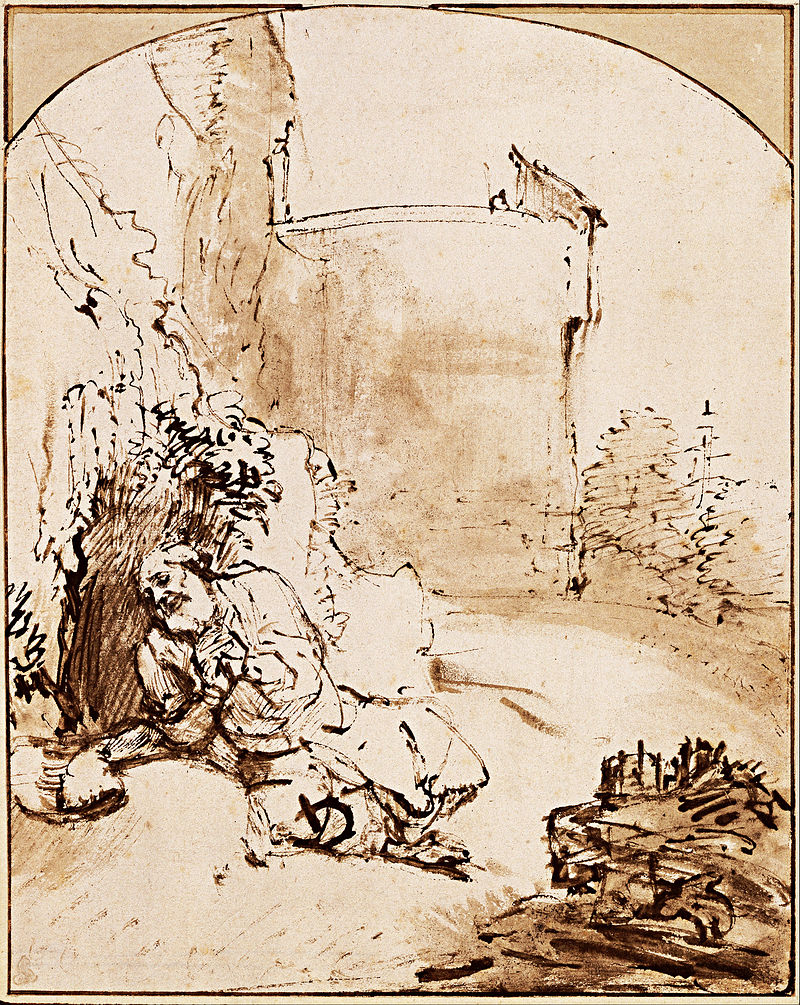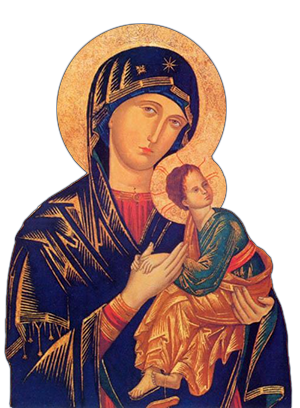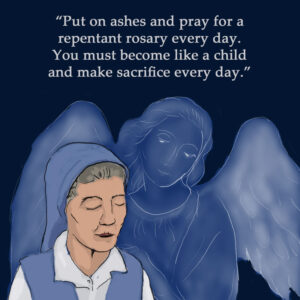The Hope of Nineveh

When considering the new message from Sr. Agnes, Father Heilman offered the following commentary:
I’ve been doing very strict fasts since we got [the story of the new message]. I’m taking this very seriously, and we’re trying to do our best to call out to God as the people of Nineveh did, because, you know, it could be that our time is short and her message from 1973 might be more imminent.
– Fr. Heilman on Grace Force
On Friday, March 27th, Pope Francis performed the extraordinary prayer ceremony, the Urbi et Orbi (city and world) blessing, where viewers beheld at an acutely empty, rain-swept Saint Peter’s Square. Friday, was also the feast of St. Lazarus, whom Jesus raised from the dead, and the most deadly day for Italy since the virus began.
Countless commentators have lamented the empty churches of Italy, which have come to serve tourists more than worshipers. In the US, we have also seen a steep decline in Catholic identification. And now with the rising fatalities and sickness throughout the world, the question of life itself has come to the fore and great number of people are awakening to the deadly state of their life for perhaps the first time in decades.
This Lent, perhaps more than ever before, the question of repentance has come starkly into consciences across the world, while confusion reigns, as it did in Nineveh in time of Jonah.
Jonah and Jesus
Jonah’s prefigurement of Christ is evident in the parallel stories of the pagan boat in the storm, when Jonah slept, and the disciples boat in the storm on the sea of Galilee, when Jesus slept, and this was the Gospel reading during the Urbi et Orbi blessing.
The connection between God’s resurrection and Jonah is made explicitly the Gospel of Matthew
Just as Jonah was in the belly of the whale three days and three nights,so will the Son of Man be in the heart of the earth three days and three nights. At the judgment, the men of Nineveh will arise with this generation and condemn it, because they repented at the preaching of Jonah; and there is something greater than Jonah here.
Matthew 12:40-41
Jonah, having been discovered as the cause by his shipmates, Jonah offers himself to the crew to calm the waves (Jonah 1:12), and Jesus does this in Gethsemane (John 18:11-12).
Jonah goes to Nineveh
The story of Nineveh takes the matter even further. Nineveh was a sprawling pagan city, three days travel across (historians say this was likely 50 miles).
As in our age, the wickedness of the Ninevites cried out to God, but He showed this alien people mercy through the prophet of Jonah, who called them all to penance. And the people heeded him.
So Jonah set out for Nineveh, in accord with the word of the LORD. Now Nineveh was an awesomely great city; it took three days to walk through it. Jonah began his journey through the city, and when he had gone only a single day’s walk announcing, “Forty days more and Nineveh shall be overthrown,” the people of Nineveh believed God; they proclaimed a fast and all of them, great and small, put on sackcloth.
Jonah 3:3-6
Three days in the belly of the whale for his own penance and three days across Nineveh calling out for repentance, like the three days Jesus lay buried in the tomb.
The hope of the Ninevites
Perhaps the most sobering reflection on this call is from St. Clement of Rome, who said this:
Let us survey all generations and learn that in generation after generation the Master has offered those who wished to turn to him an opportunity to repent.
Noah preached repentance and those who obeyed were saved. Jonah warned the men of Nineveh of destruction, but they repented of their sins and besought God and were forgiven and saved, although they were aliens from God…
– St. Clement of Rome / Letter to the Corinthians, § 7-13
It is painful to consider ourselves as aliens from God, as the pagan Ninevites were, but with the state of our societies being as they are, can we not say that we are unmoored from Christ; adrift from the Way, the Truth, and the Life? This lack of orientation and wayward drift is no less than our need to repent.
When Jonah left Nineveh, he was frustrated at God for having him go through the effort only to see the city spared. But God explains his mercy in the final verse of the book:
And should I not be concerned over the great city of Nineveh, in which there are more than a hundred and twenty thousand persons who cannot know their right hand from their left, not to mention all the animals?
Jonah 4:11
In the end, God had pity on the people, who were so disoriented that they couldn’t distinguish the right hand from the left, and therefore possessed no ability to identify what was natural, even of themselves. But if that pagan city could be spared for fear of the Lord, perhaps there is hope for our formerly Christian cities?
St. John Chrysostom comments:
Let us beware of losing all hope, but let us also avoid giving in too easily to carelessness… Despair hinders those who have fallen from getting up again and carelessness causes those who are standing to fall…If presumption casts us down from the heights of heaven, despair casts us into the infinite depths of evil, whereas a little hope is enough to hold us back…This is how Nineveh was saved. However, the divine judgement pronounced against the Ninevites was of a nature to throw them into confusion since it did not say: “If you repent you will be saved” but simply: “Three more days and Nineveh will be destroyed” (Jon 3:4). Nevertheless, neither the Lord’s threat, nor the prophet’s preaching, nor even the severity of the judgement… caused their confidence to fail. God wants us to draw a lesson from this unconditional judgement,that taught by this example we may resist despair as much as passivity…
– St. John Chrysostom / Homilies on conversion no .1 (via DailyGospel.org)
– WQPH Contributers



